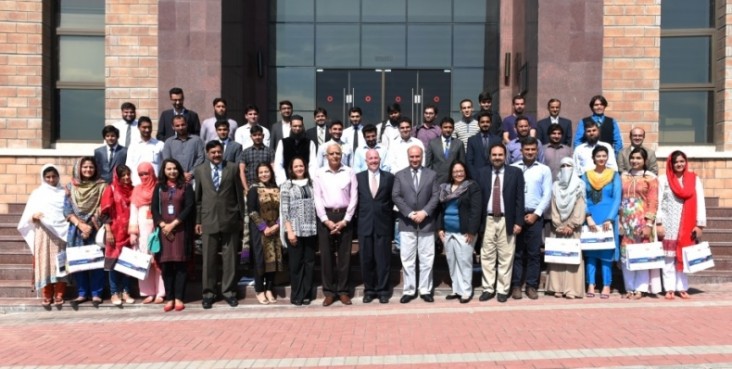
For Immediate Release
U.S. and Pakistani officials gathered today to recognize 33 Pakistani graduate students and two faculty members who will soon travel to the United States to spend a semester at Arizona State University and Oregon State University. During their exchange program, which is funded by the U.S. Agency for International Development (USAID), these individuals will conduct research relating to Pakistan’s most pressing energy challenges.
This academic exchange is associated with USAID’s five-year, $127 million investment in the U.S.-Pakistan Centers for Advanced Studies Program, which aims to harness applied research to find innovative and practical solutions to Pakistan’s energy, water, agriculture, and food security challenges. As part of this program, approximately 200 Pakistanis will spend a semester at American universities over the next four years. Faculty will have the opportunity to enhance their teaching skills and to learn how to build successful partnerships between academia and the corporate sector, while students will focus on research and industry awareness.
“Over time, USAID expects each Center for Advanced Studies will form public-private partnerships and networks to bring together the best minds in academia, government, and the business community and drive innovation, competitiveness, and economic growth,” said USAID Deputy Mission Director James Peters. “The centers will also set new standards for supporting the success of women and disadvantaged youth in the engineering profession.”
Under the umbrella of the Higher Education Commission, the U.S.-Pakistan Centers for Advanced Studies in Energy at the National University of Sciences and Technology and at the University of Engineering and Technology, Peshawar are expected to become Pakistan’s premier sustainable energy research centers. American and Pakistani officials have also collaborated to establish a Center for Advanced Studies in Agriculture and Food Security at the University of Agriculture, Faisalabad in partnership with the University of California-Davis, and a Center for Advanced Studies in Water at Mehran University of Engineering and Technology, Jamshoro in partnership with the University of Utah.







Comment
Make a general inquiry or suggest an improvement.